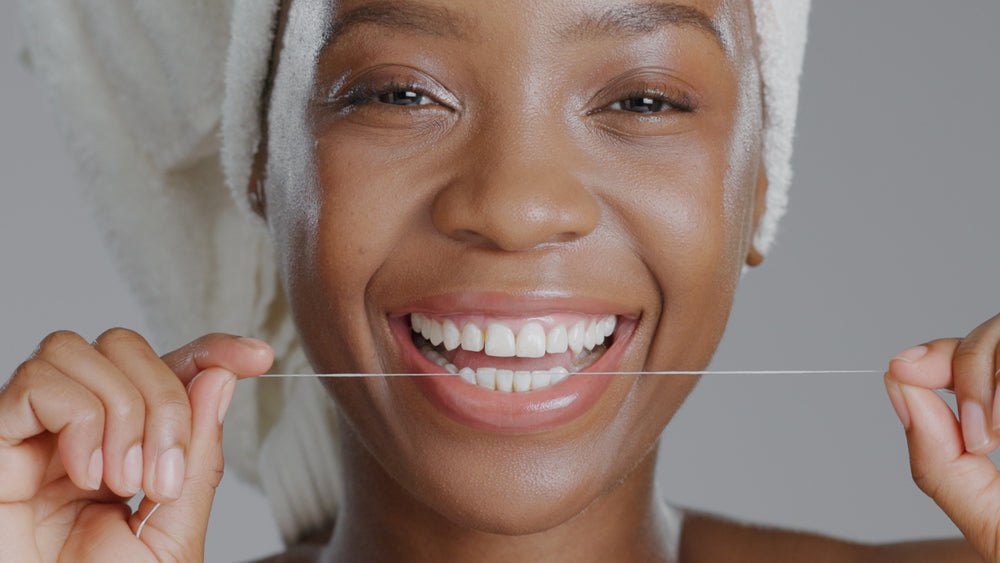
Why Do My Gums Bleed When I Floss?
|
Time to read 4 min
Published on
|
Time to read 4 min
Flossing is one of the most important parts of your oral hygiene routine, but have you ever noticed bleeding from your gum afterwards? The bleeding can happen due to several reasons such as using the wrong flossing techniques or neglecting your daily dental care routine.
In this blog we'll take a closer look at the causes and reasons behind gum bleeding and explain how you can prevent it from happening.
Although bleeding after flossing your teeth is common, have you ever wondered what the root cause was or what should you do if your gums bleed when flossing? There are several causes for bleeding in gums after flossing that we'll discuss here:
Poor Oral Hygiene
Gum bleeding can happen due to poor oral hygiene. If you don't brush regularly or floss your teeth, then plaque and bacteria can build up on your gums and teeth and cause sensitivity and inflammation which will lead your gums to bleeding.
Gum Disease
Gum Disease, which is referred to as periodontal disease, is a serious dental condition which can cause gum bleeding. This disease can be caused by bacteria which can build up in your mouth and infect your gums and other tissues that are supporting your teeth.
Medications
Medications like blood thinners can be a cause for gums bleeding so if you are taking any medications and your gums bleed after flossing, consult your dentist or doctor as soon as possible.
Hormonal Changes
Hormonal changes can also cause gum bleeding. The changes that occur during puberty and pregnancy can cause the increase of flow to your gums which make them more sensitive and prone to bleeding.
Brushing Too Hard
Using a hard-bristled brush can also be a cause for gum bleeding. It's always recommended to use a soft-bristled brush and to brush your teeth gently to avoid gum bleeding.
What is the Proper Technique for Flossing Teeth?
Flossing your teeth shouldn't be painful or cause bleeding, however, you could experience gum bleeding due to using the wrong technique. Here are the steps to properly floss your teeth:
Should I Floss or Brush First?
Should I Floss or Brush First?
It's recommended to brush first before flossing because brushing first can help remove food particles and plaque from the surface of your teeth which can make it easier for floss to reach.
Flossing Wrap Up
You can help prevent gum disease and tooth decay by going regularly to your dentist, flossing and by brushing correctly, but you can also help prevent bleeding of the gums by maintaining your oral hygiene with our products as well.
Effective bad breath remedies include:
Gentle and regular scraping of the tongue
Regular oral care practices such as daily brushing and flossing
Professional deep cleanings and plaque removal
The ongoing use of oral probiotics.
One, the probiotics compete with the existing bad bacteria and reduce their presence by “crowding them out”
Two, the probiotics produce BLIS or “bacteriocin-like-inhibitory-substances” which is a technical way of stating that one probiotic strain (bacteria) can produce a substance that inhibits or kills off other bacteria. Three, by working to control gingivitis, gum disease and tooth decay these probiotics reduce the very sources of bacteria-generated odors in the mouth.
Studies have shown a clear reduction in plaque levels and gingivitis symptoms when oral probiotics were administered to patients with moderate to severe gingivitis.